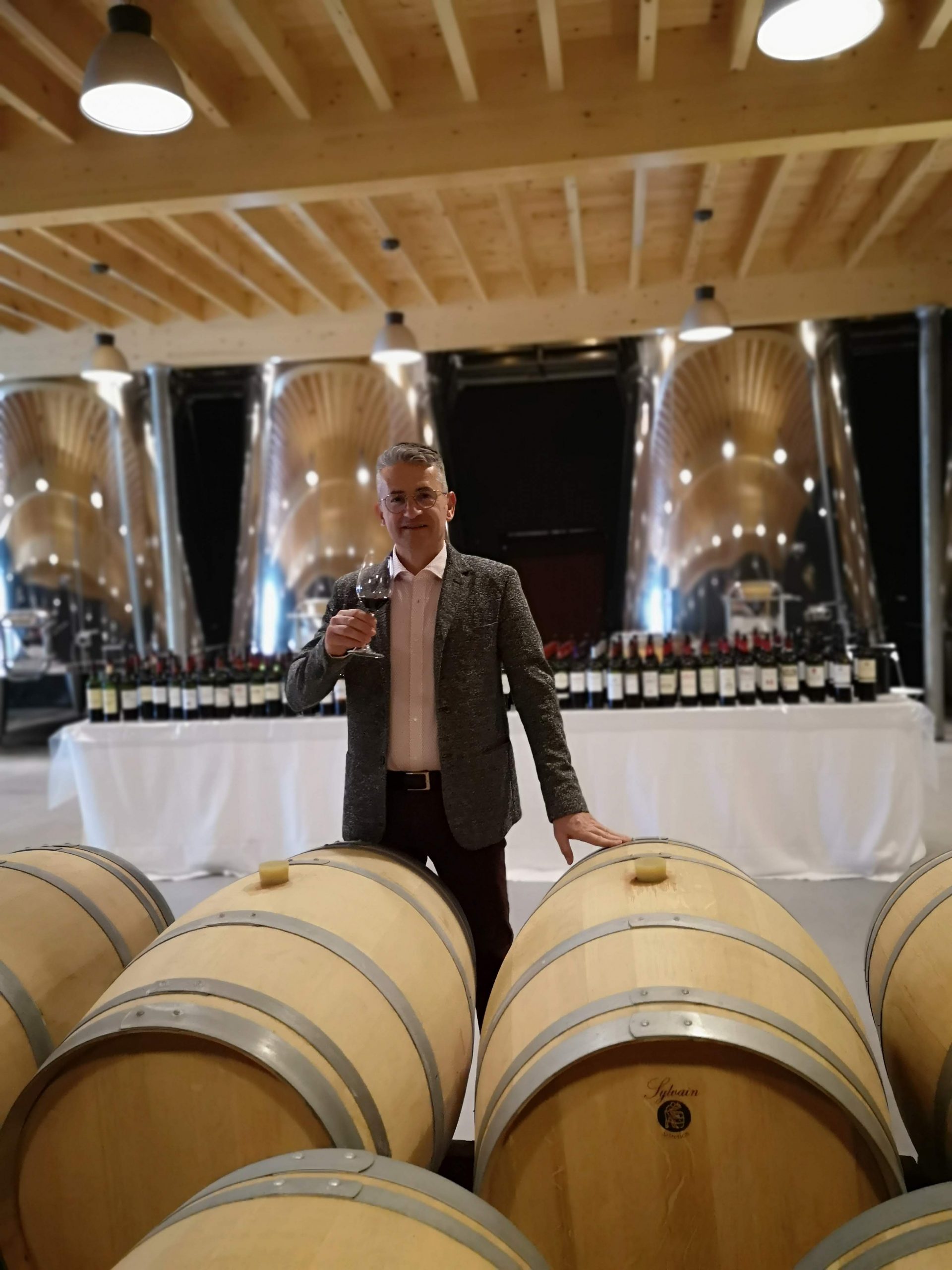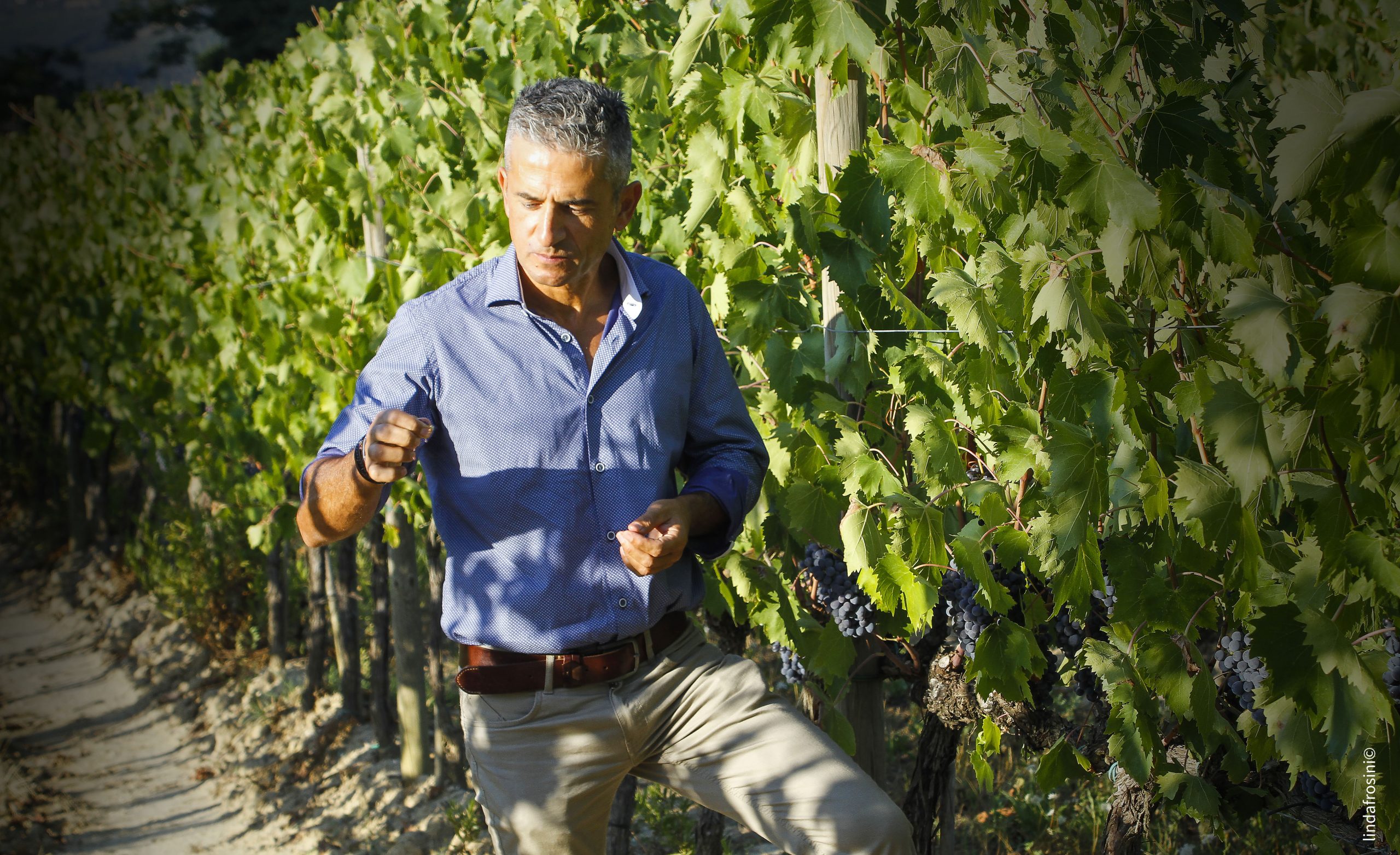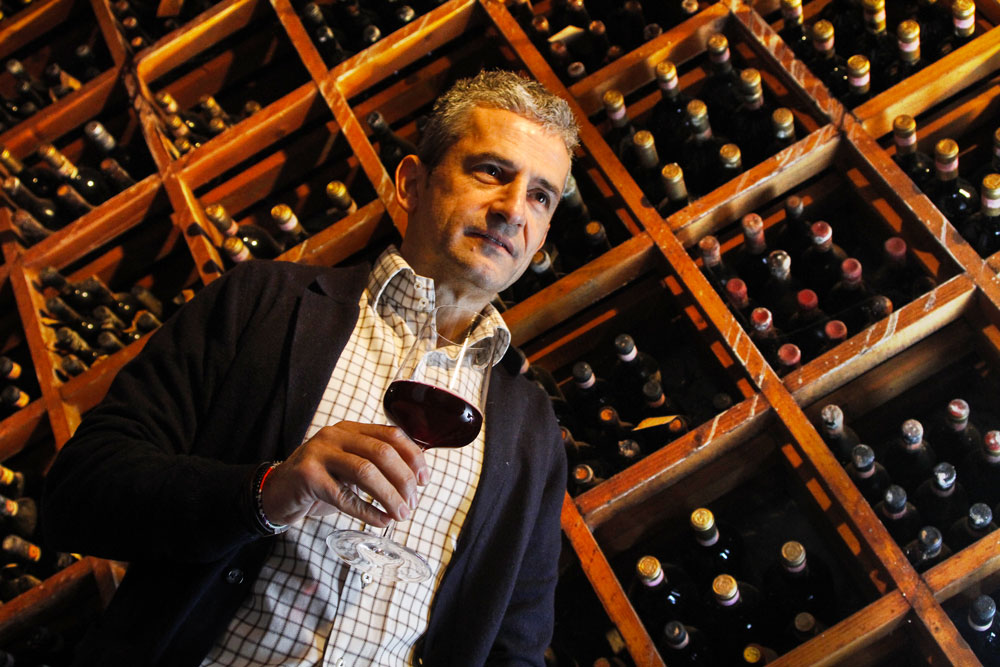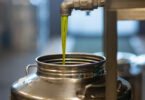The Wolf Post, supported by a Cultural Association, offers a professional service with free access, without subscription.
For this reason, a donation would also be a sign of appreciation for our work.
Credits: Luciano Bandini Winemaker
The cellar is the beating heart of the company where the manual skills of the operators and the knowledge of the winemaker merge. Of course, today, technology is an indispensable element which, however, according to some, has taken poetry away from a work that is lost in the mists of time.
We ask the oenologis Luciano Bandini for his opinion on the matter.

© Luciano Bandini Enologo
What is your opinion on the statement: “Wine is no longer made in the vineyard, but only in the cellar”? A cliché or does it hide a grain of truth?
If anything, I would say the opposite. Wine has always been made in the vineyard. Let’s say that in the historical period of the 50s/70s we forgot it a little. The vineyards in production at that time were marked more by quantity than quality. Therefore, it was necessary to work a lot in the cellar to remedy many shortcomings. Since the 80s and 90s there has been a profound renewal of the vineyards, and the sensitivity towards an organic and intact product has increased. In the cellar there has been a strong biotechnological innovation that has made it possible to work in order to prevent and not to cure defects and diseases. The primary goal today is to produce a grape with high quality contents in terms of aroma, structure and shelf life, limiting interventions on it to a minimum. In the cellar we only have to try to safeguard all the potential of the grapes to bring it back to the bottle at the end, accompanying the process of transformation and maturation in its most correct evolution. Nothing can be left to chance, every organoleptic defect is not synonymous with naturalness and personality, on the contrary it is exactly the opposite.

© Luciano Bandini Winemaker
How much has technology in the cellar improved and how depersonalized the work of the winemaker?
Without technology, certain wines that have made the history and fortune of an entire territory would never have been born. Undoubtedly, many technological innovations have allowed us to eliminate many risks, and consequently many organoleptic defects, becoming indispensable for obtaining quality wines. Like all things, however, they must be used correctly if we do not want to trivialize or depersonalize the product. The oenologist does not do a good job if he modifies and personalizes the raw material to his liking. The oenologist does a good job if, using technology, he extracts and enhances all the positive characteristics of the grapes, with respect, without forcing. I don’t like to think of the wine of the oenologist, but of the wine of the representative company of a territory. Technology is actually helping us a lot in this way of working, but we have to use it wisely.

© Luciano Bandini Enologo
According to your experience, which technological tool today is impossible to give up?
I have no doubts: the temperature control. It is impossible to think of obtaining the aromatic cleanliness, the exaltation of the primary aromas, the structure and softness to which we are accustomed, without temperature control at all stages of the process, from maceration of the grapes, to fermentation, to maturation. Dealing with alcoholic fermentation without temperature control would be like going downhill with a car without brakes.

© Luciano Bandini Winemaker
What are the main criticalities of a cellr and what is your modus operandi to solve them?
In my opinion, the first critical point is still cleanliness. Too often I see a lot of approximation. Sensitivity is lacking not so much in cleaning and cleaning, as in sanitizing. Sterilization of all cellar equipment, and of the cellar itself, is essential. In some cases, such as wood, it is not easy to obtain, because wood is porous and must be treated delicately. But if we are not careful, Brettanomyces yeast, for example, can do considerable damage.
Another critical point is the reception of the grapes. Also in this case there is still little attention both to the selection of the grapes and to the processing of the grapes. It is very important to select and eliminate any diseased grapes. Even 1% of berries attacked by rot or mold can modify and damage the final product, forcing us to use more sulfur or other adjuvants. The grapes then, at the time of destemming or pressing, should be treated very delicately, and protected from oxidation, otherwise there is a risk of extracting substances with bitter and astringent tastes, favoring the production of lees and oxidative enzymes, which obviously cause a deterioration of the quality.

© Luciano Bandini Winemaker
In your imagination, how should your ideal cellar be structured? Did you manage to find it in any company?
Unfortunately no, I haven’t found the perfect winery yet, many come close though. The ideal cellar for me is the one that allows, first of all, to overcome the critical points. Therefore, to allow a perfect sanitization, and very little movement of the solid parts, that is of the grapes, before their transformation into the liquid phase. Well, then, the cellars on two levels to take advantage of the gravity in the reception phase. In my opinion, however, there are no problems for handling the must or wine, we have really respectful and delicate pumps available. Obviously, also a cellar with temperature control in every phase of work. Concrete or wood are preferable to stainless steel.







